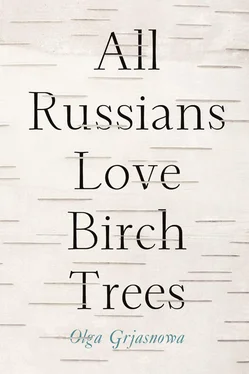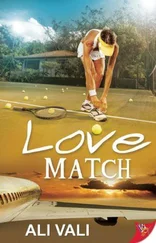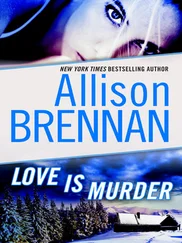Officially, we were part of a contingent of Jewish refugees that were allotted to strengthen the Jewish communities in Germany. But our emigration had nothing to do with Judaism and everything to do with Nagorno-Karabakh.
In the beginning of 1987, a campaign was launched in Armenia to integrate Nagorno-Karabakh into the Armenian Soviet Republic. At that time, both Azeris and Armenians lived in the territory. Mass demonstrations by Armenians were held in Yerevan, the first of their kind in the Soviet Union. On February 20, 1988, the Nagorno-Karabakh Autonomous Oblast declared their secession from the Azerbaijan Soviet Republic. Clashes followed, and the first wave of Azeris had to flee. Then the situation escalated. But nobody expected the Sumgait Massacre. It all started with a small demonstration. Supposedly it was Azeri refugees from Kafan who had gathered in the city center. The police didn’t do anything. Over the next two days, multiple Azeri gangs raided the city and turned it into a death zone for Armenians: they broke windows, set cars on fire, and looked for Armenians. Apartments were trashed and plundered, the residents debased, abused, and raped. Several people were mutilated with axes — to the point that their bodies couldn’t be identified later. The murderers often couldn’t tell Azeris from Armenians as there were no distinguishing ethnic features and most Armenians spoke excellent Azerbaijani. I was on my way to the conservatory with my mother when the first rumors reached Baku. We were standing in the line for bread and the woman in front of us told another woman in Russian that her friends’ car had been stopped, the passengers had been ordered to get out and recite the Azerbaijani word for hazelnut— fundukh . “Say fundukh !” the attacker yelled. “If you can say fundukh you are a Muslim. Then you have nothing to worry about.” My mother explained to me that Azeris and Armenians pronounced the word differently. That was the only explanation she could give. About thirty people died during the pogrom. Almost all 14,000 inhabitants of Armenian descent fled from Sumgait.
Over the next months and years there was to be more violence, displacements, rapes, and pogroms on both sides. The national movements gained backing, the status of Nagorno-Karabakh remained unresolved. Then the Armenian parliament decided that Nagorno-Karabakh belonged to Armenia. Two days later the Azeris declared that it was, in fact, their land. Armenians left Azerbaijan and Azeris left Armenia, and few did so by choice. We collected clothes and food for the ever-increasing number of refugees. The first time I saw a boy my age begging in the city center with stumps instead of legs, I was infuriated because I understood that this wasn’t the result of an accident, nor had he been born that way. My father was sent to Karabakh as an observer and often for days on end we didn’t know whether he was still alive.
The fight for power and oil was raging. In Baku the National Front was founded. Meetings were held in factories and offices. Arms, purchased from Russian soldiers (illegally, of course), were stashed away. Back then, a Kalashnikov was a hundred dollars, a tank three thousand. Our neighbor became a fervent nationalist, too. When she attended assemblies my mother watched her son Farid.
The hatred was nothing personal. It was structural. The people didn’t have faces anymore. No eyes, no names, and no professions — they became Azeris, Armenians, Georgians, and Russians. People who’d been acquainted all their lives forgot everything about each other. Only their alleged nationality remained.
On January 13, 1990, members of the National Front, refugees from the annexed territories, and supposed KGB agents went from one Armenian apartment to the next. There was a system to it. They had lists with Armenian addresses. Their visits meant looting, rape, mutilation, and murder. They killed people with knives and sticks. It wasn’t uncommon for people to fall out of windows. I was not allowed to leave the house or ask questions.
My grandfather, who was living with us at the time, was a dark-eyed, dark-haired man with pronounced cheekbones. In the tram, on his way to the university, where he taught inorganic chemistry, he was taken for an Armenian and beaten up. Three days later he died of a heart attack. I found him that morning in his favorite chair. My father locked the door to his room. It had been his father.
My mother, drenched in tears, called her mother. They argued for a while until my mother hung up and told me to get dressed. She packed a bag and handed it to my father. It was quiet in the streets. Next to some houses lay smashed furniture. And glass. My father dragged me by the arm, told me to hurry up. My grandmother lived only three streets away. When I arrived at her apartment my childhood was over.
On January 15, 1991, Russian troops gathered around Baku. The population grew nervous. Roadblocks and barriers were erected on roads leading to Baku and in front of Russian barracks. The Russian invasion had to be stopped. A few days later the radio and TV stations were blown up by a KGB unit. Static on all channels. Nobody knew anything anymore and we were prepared for everything. I heard the first tanks roll down the streets. Our neighbor stood in my parents’ kitchen and yelled: “All Russians are murderers.” Calm and composed, my father answered, “Please leave my house.”
Russian snipers shot at unarmed people. Tanks rolled over barricades, over people, over an ambulance. Hundreds died that night. A sixteen-year-old Jewish girl was shot in her living room because her shadow was visible on the window. She bled to death lying on a rug in colors and ornamentation typical of the Caucasus region.
The next morning tens of thousands demonstrated in front of the president’s palace. On January 23 there was a rally for the fallen martyrs and my parents tried to bury my grandfather at it. His corpse had been decaying in our apartment for days. The decision turned out to be a bad one. My parents’ car was stopped, they were accused of being Russian agents and murderers and almost dragged out of the car. The target of the hatred now was Russians. My parents were accompanied by a friend who spoke accent-free Azerbaijani and was a member of the National Front. This friend saved my parents’ lives that day.
A general strike marked the following forty days of mourning. The declaration of independence followed in October. Instruments for identification and classification were created; a new flag flew: blue, red, and green with a white crescent and a white eight-pointed star. Blue represented the sky, red freedom and the blood that was shed to gain the freedom, green the fertility of the land — all of which we learned at school. I didn’t start school until December. We kept our coats on in the classroom and wrote with gloves because the windows were broken. An unannounced curfew descended over Baku like fog and would remain there until our emigration.
Nagorno-Karabakh was at war. Our neighbor implored God five times a day: “Don’t let my son go.” It didn’t help. Farid was drafted two days after his eighteenth birthday. My mother gave him my father’s warm jacket. Farid didn’t return and his mother stopped praying.
Refugees from Nagorno-Karabakh camped out in parks, wrapped in blankets. Some of them were mutilated. Many occupied Armenian apartments, by force if necessary. A million Azeris had fled from Nagorno-Karabakh. The schools with classes in Azerbaijani filled with new students from Karabakh, while the Russian-speaking ones emptied out. Meanwhile, I played with my dolls and practiced forgetting.
In the following years there was hardly any gas, hardly any electricity, hardly any water, at most for an hour a day. Every hospital treatment came at a price. Money couldn’t be printed fast enough and any semblance of comprehensible rules had gone out the window. The system had collapsed. People who recently had been well off now hurried along the streets, cowering, their expressions desperate. Many took to begging. A well-dressed woman rang our doorbell. Her twins were dying. Her hands shook as she took my mother’s money. The intelligentsia and the mafia left. Hardly anybody stayed in Baku: no doctors, no professors, no engineers; neither Armenians, nor Georgians, Jews, Russians, Tartars. The only thing left was graves. Relatives from abroad sent money for their upkeep.
Читать дальше












